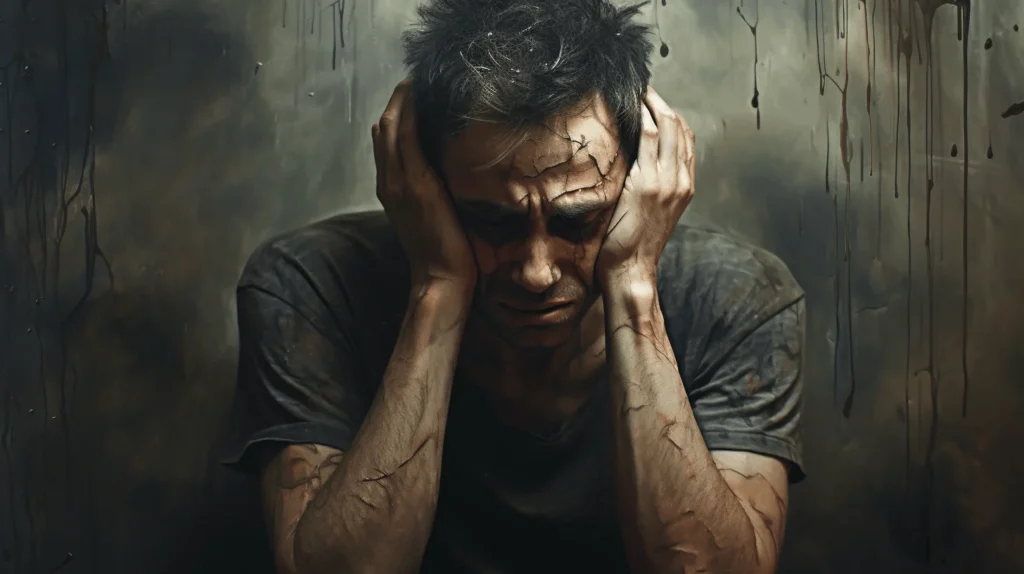Science
Japanese Breakthrough: Thanks to Extraordinary Caterpillars
02 July 2025

While observing humans in the 21st century, it is worth asking the question about the reasonableness of experiencing pain in our everyday lives. One can get the impression that it is becoming more and more difficult to bear, and modern culture, with the enormous progress of science, strives not only to minimize this experience but to eliminate it altogether.
However, one may ask: Maybe we need pain for something? After all, it is a natural reaction of the human body to a threat. Pain also communicates, a signal containing a specific message. Perhaps it is worth seeing in this experience the hidden sense and meaning that should give us food for thought.
Hans Christian Andersen (1805–1875), by writing his fairy tale entitled The Princess and the Pea, metaphorically expressed the condition of modern man in an extremely apt way. A pea hidden under the mattress caused the princess so much pain that she could not sleep. Each movement caused her discomfort, which in the long run turned into suffering. This picture can be read today as a parable of human hypersensitivity in the 21st century.
We suffer more and more, and we find it more and more difficult to cope with this experience. We also find more and more reasons for our pain, and the subjective feeling of it is intensifying. With increasing expectations toward medicine, we lose sight of the sense of pain and every slightest discomfort we begin to perceive as something that must be eliminated.
At the same time, the statistics presented every year on the amount of purchased and consumed medicines – including, and perhaps above all, painkillers – are terrifying. Many doctors see this as a great threat and explain such results not only with a lack of reason and responsibility for one’s health but also with a lack of awareness and increasing human liking of comfort. It is easier to swallow another tablet for a common headache than to wait patiently, rest, and give the body a chance to react on its own. It is more convenient to take the next pill for muscle and joint pain than to think about what they result from and what may be their cause.
It could turn out that it is we who harm ourselves by choosing a multi-hour model of working with a laptop in one position, rather than a walk for health or a half-hour set of exercises relaxing muscles and bones, constantly exploited in a senseless way. The lack of awareness, combined with laziness and the excessive need for convenience, with quick and easy access to the range of drugs, leads us on the path of eliminating pain at all costs and in all possible ways. The faster, the better. As long as it doesn’t hurt.
Michel Foucault (1926‒1984), a French philosopher, sociologist and historian, when describing disciplinary society in the 18th and 19th centuries, pointed to the sources of pain situated outside man. For many centuries pain has been treated as a means of control and exercising power over citizens. The disciplinary authority, identified with specific hierarchical institutions, treated pain as a method of managing and disciplining people. All dos and don’ts were instilled in citizens through various ways of dosing pain. Foucault described prisons, hospitals, barracks, workplaces, factories and schools as hierarchical institutions in which every citizen was dependent on someone, and obedience was obtained through the application of various kinds of punishments.

The nineteenth century, however, brought a different picture of man, thoroughly analyzed by the German thinker of Korean descent Byung‒Chul Han (b. 1959). In his interpretation, modern man is the subject of achievement and success, who is not subject to such clear influences of people from outside as they used to be. Han’s diagnosis shows that humans become an oppressor unto themselves, exploiting each other in every possible way to achieve the goals they set for themselves.
They think they are free. They exploit themselves, without the need for any external compulsion, and in doing so they believe that they are realizing themselves. Freedom is not curtailed but exploited.
In such a model of functioning, there is no room for experiencing pain, because it is treated as an unforgivable weakness.
Suffering is understood to be the result of personal failure. Instead of revolution we thus get depression,
concludes Han.
Modern man blames himself and not others for his failures. When we do not keep up with the goals we set for ourselves, it opens up a space for frustration, fear, and self-doubt. The emotional and psychological pain that occurs then is eliminated by appropriate drugs prescribed by a psychiatrist, instead of trying to read the signal sent by your own body by oneself. We do not respect our body which is trying to communicate something important to us. How often does the mentality of: “I can’t? I can’t do it?”, which leads to violent treatment of oneself, win us over? It is in such a society that
the silent forms of pain that have been pushed to the margins grow, and their meaninglessness, muteness and imagelessness persist,
Han states.
Meanwhile, modern man is not yet able to eradicate pain from their life. We reach for an ever greater arsenal of painkillers, but the pain only changes its forms. We have knowledge of the way psychosomatics work, which reveals to us the mechanisms of the connection between bodily pain and mental pain. But the pain itself is still felt by us. The more we deny it, the more it modifies its face.
Perhaps it is this constant inability to eliminate pain that should prompt modern man not only to reflect but above all to change his attitude. Pain tells us a certain truth about ourselves. Pain is the bond that connects our body to our psyche. Han writes that:
“Pain intensifies self-perception. It provides an outline of the self; it draws its contours,”
so it directs me toward mindfulness and conscious observation of my body’s reaction. Without pain, we would be blind, unable to get to know ourselves. So maybe it is worth replacing the mechanism of denial and escape from pain at least a little with conscious observation and mindfulness in reading ourselves…
Translation: Marcin Brański
We recommend: Why Can’t You Just Pull Yourself Together? On Battling Depression…